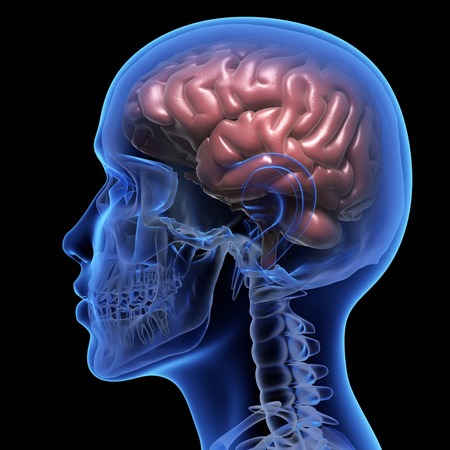Shame Based Identity Therapy
What is Shame Based Identity and Shame Based Thinking?
Struggling with shame? this is truly our "wheelhouse" and helping you heal from shame based identity is one of our strengths. When most people use the word shame, they usually mean to describe an experience that comes up because of outside influences — our parents’ disapproval or the opinion of society-at-large, for example. If I do poorly on a test or my business fails, I might not want anyone else to know because I’m afraid they’ll think less of me. Shame also arises when we violate our own internal values, but we’ve usually absorbed them from our families and the world around us.When things go very wrong in childhood, for whatever reason — an alcoholic parent, bitter divorce, mental illness in those around you, a mother with bipolar or manic-depressive issues or a father with highly narcissistic behavior — it almost always damages you at your roots and deforms you psychically, just like a birth defect or physical handicap. You may feel fundamentally afraid and insecure in the world. You might find it impossible to love and trust other people. You could be prone to violent emotional outbursts or struggle with an addiction yourself. If the environment is toxic, we’re almost always damaged by it in lasting ways. With my clients, I often talk about mental scars or psychological handicaps. They impose limitations and have to be taken into account just as you would a physical handicap.
Shame-based thinking is derived from feelings that make you believe that there is something wrong with you. Merriam-Webster defines shame as “a painful emotion caused by consciousness of guilt, shortcoming, or impropriety.”
The feeling becomes internalized to create a belief that leads you to define yourself as being “bad,” “wrong,” or “damaged.” As you can imagine this is not a positive or healthy way of viewing yourself, yet it happens a lot.
Texas Care realizes many clients come to therapy feeling shame which has been ‘pre-programmed’ from other people such as lovers, parents, teachers or abusers.Shame is like an internal voice which criticises, judges and repeats what may have been said to you by others such as you are ugly , stupid , bad , or ‘if it wasn’t for you ’.
The reason shame can be hard to work with is that it is surrounded by a set of very able ‘bodyguards’ such as anger, fear, embarrassment, denial and love.
All of which provide a very effective mechanism to deny the client access to their real self and as importantly their ability to self heal.
Shame can take many forms, physically a person may not make eye contact with you, or avoid you gaze. blushing, being defensive, anger, denials as well as affecting the individual’s ability to think or see the world rationally are all the products of feeling this strong and self esteem corroding emotion.
Exaggeration or a desire to overly please can trace their roots back to a shamed psyche, which impacts on our ability to form intimate relationships or know our self worth.
How Does Shame-Based Thinking Develop?
You can develop a perspective of yourself based on shame from:
- A childhood experience, such as receiving reinforcement from a parent that there is something wrong with you.
- Experiencing a traumatic event or multiple traumatic events.
- Feeling regret for actions that you committed in your past, such as committing a crime.
Shame does not come from an embarrassing situation or awkwardness. Instead, it’s origins are much deeper and contribute to how you define yourself as a person.
What Are the Dangers of Shame-Based Thinking?
Certainly having a negative self-image is one problem associated with shame-based thinking. Other issues include:
- Not feeling capable of accomplishing your goals or dreams.
- An inability to create deep, meaningful, and loving relationships.
- Using substances to cope with the feelings of shame and thus developing an addiction.
- Feeling disconnected and lost.
The danger of shame-based thinking is that you believe that you are “wrong.” This actually becomes a repeating theme in your life as you have experiences that reinforce this belief.
How is it Possible to Eliminate Shame-Based Thinking?
The first step toward eliminating shame-based thinking is asking for help. This in itself is challenging because you either don’t believe you need help since how you think is “normal” for you. Or, on the other hand, you believe that you aren’t capable or deserving of help. That’s why it can be so hard for those who feel shame to even begin this process. You need to believe that you deserve to get help and that something has to change.
Working with a Texas Care on Shame-Based Thinking
This is why working with a our team or a therapist of your choosing is so important for this process to be successful. A therapist can work with you to dig into your past to understand why you feel the way you do. For many, this is an uncomfortable, even scary proposal, as it can bring up a lot of painful memories. Yet it’s important, not just for your therapist to understand how to best help you, it’s necessary for you as well so you can understand how you got to this point in your life.
Using Compassion with Shame-Based Thinking
As you begin to face the origins of your shame-based thinking, a lot of emotions will arise, including anger and resentment or sadness and hopelessness. That’s why it’s important for you to have compassion for yourself. Allow yourself to open up and feel relief from the burden that you carry. You can learn how to love and accept yourself, which in turn eliminates shame.
Just because you have carried the weight of shame-based thinking doesn’t mean you have to let it define who you are. Yet, in order to begin the healing process, you need to be able to accept the help of others. Once you do, allow yourself to feel compassion and forgiveness. Remember, the best way to eliminate shame is through love, including loving yourself.
For more information on Shame Based Identity Therapy or other Texas Care treatment services, feel free to call 1-88-98TODAY and an Intake Coordinator will be happy to take your call and direct you to the appropriate department. Visit our FAQ page for more information on how Telehealth, Telemedicine, and TeleBehavioral Health can work for you.















